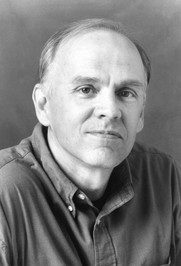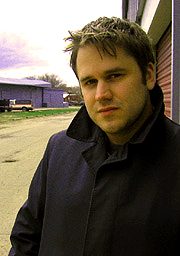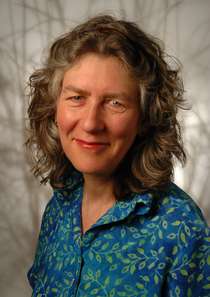Two members of the Warren Wilson MFA poetry faculty will be honored by the Fellowship of Southern Writers at the seventeenth biennial Celebration of Southern Literature to be held April 18-20 at the Tivoli Theater in Chattanooga, Tennessee.

Maurice Manning will be inducted as the newest member of the Fellowship of Southern Writers. The Fellowship recognizes distinction in writing by election to membership. The Gone and the Going Away (Houghton Mifflin Harcourt, April 2013) is Manning’s fifth book of poetry. His previous book, The Common Man
(Houghton Mifflin Harcourt, April 2013) is Manning’s fifth book of poetry. His previous book, The Common Man , was a finalist for the Pulitzer in 2011. He is a recent Guggenheim fellow and teaches at Transylvania University in Lexington, Kentucky, in addition to the MFA Program for Writers at Warren Wilson College. Previous Warren Wilson MFA faculty members elected to the FSW include Betty Adcock, Rodney Jones, Dave Smith, and Ellen Bryant Voigt.
, was a finalist for the Pulitzer in 2011. He is a recent Guggenheim fellow and teaches at Transylvania University in Lexington, Kentucky, in addition to the MFA Program for Writers at Warren Wilson College. Previous Warren Wilson MFA faculty members elected to the FSW include Betty Adcock, Rodney Jones, Dave Smith, and Ellen Bryant Voigt.

Brooks Haxton will receive the 2013 Hanes Award for Poetry. Born in Greenville, Mississippi in 1950, Haxton is the son of the novelist Ellen Douglas and the composer Kenneth Haxton. He is the author of ten books of poetry and translations, the most recent of which is They Lift Their Wings to Cry (Knopf, 2008). He teaches at Syracuse University and has been a member of the Warren Wilson faculty since 1990. “We are pleased to present Brooks Haxton with the 2013 Hanes Award for Poetry,” said Alan Wier, FSW Chancellor. “Giving awards to and recognizing distinction in literary writing is central to the Fellowship’s purpose.” Previous winners of the Hanes Award include Warren Wilson MFA faculty members Betty Adcock, Rodney Jones, Maurice Manning, and Ellen Bryant Voigt.
(Knopf, 2008). He teaches at Syracuse University and has been a member of the Warren Wilson faculty since 1990. “We are pleased to present Brooks Haxton with the 2013 Hanes Award for Poetry,” said Alan Wier, FSW Chancellor. “Giving awards to and recognizing distinction in literary writing is central to the Fellowship’s purpose.” Previous winners of the Hanes Award include Warren Wilson MFA faculty members Betty Adcock, Rodney Jones, Maurice Manning, and Ellen Bryant Voigt.
Founded in 1987, the Fellowship of Southern Writers is a not-for-profit organization that recognizes and encourages excellence in Southern literature. For more information about the Celebration of Southern Literature, visit http://southernlitalliance.org/ or call 1-800-267-4232.










